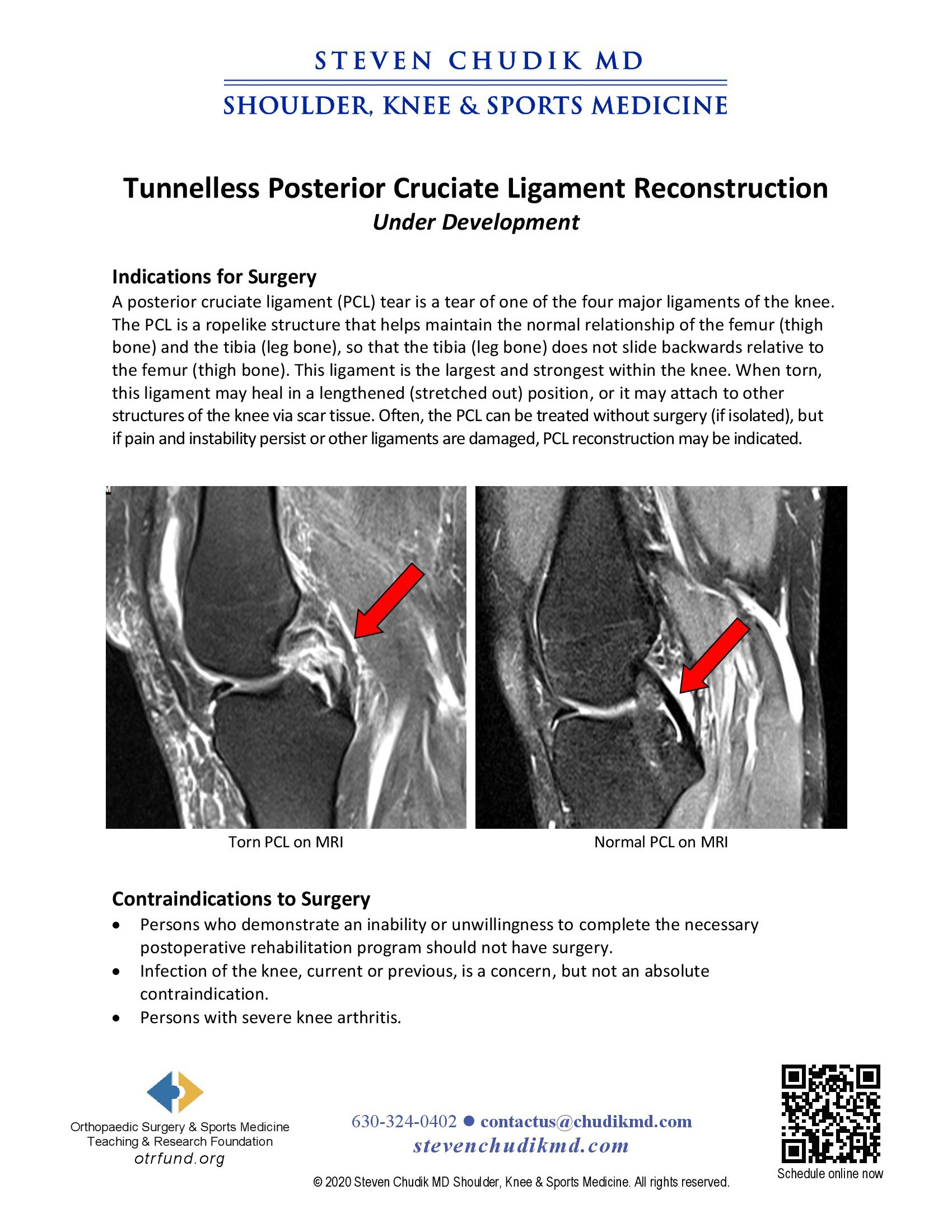 Don’t drink caffeine for an energy boost---climb the stairs
Don’t drink caffeine for an energy boost---climb the stairs
Home / Special Procedures / Tunnelless Posterior Cruciate Ligament Reconstruction
A posterior cruciate ligament (PCL) tear is a tear of one of the four major ligaments of the knee. The PCL is a ropelike structure that helps maintain the normal relationship of the femur (thigh bone) and the tibia (leg bone), so that the tibia (leg bone) does not slide backwards relative to the femur (thigh bone). This ligament is the largest and strongest within the knee. When torn, this ligament may heal in a lengthened (stretched out) position or it may attach to other structures of the knee via scar tissue. Often, the PCL can be treated without surgery (if isolated), but if pain and instability persist or other ligaments are damaged, PCL reconstruction may be indicated.
Dr. Chudik is developing techniques for tunnelless PCL surgery. This surgery is a less invasive procedure that reconstructs the PCL without drilling large tunnels in the bones of the femur and tibia and better reproduces the normal anatomy and function of the PCL. He has been able to perform successful tunnelless PCL surgery on the tibial side. There is still further development needed to address the femoral side. PCL reconstructive surgery can be performed as an outpatient procedure (go home the same day) with general anesthesia and an adductor or femoral nerve block. The torn PCL is replaced by a graft that is aligned and secured in its anatomic position with special fixation devices. There are different PCL graft options and each has its own risks and benefits. Prior to surgery, Dr. Chudik will discuss the type of graft that is best for you.
Learn More

 Santi simultaneously rebuilds his shoulder and his house
Santi simultaneously rebuilds his shoulder and his house
Dr Steven Chudik founded OTRF in 2007 to keep people active and healthy through unbiased education and research. Click to learn about OTRF’s free programs, educational opportunities and ways to participate with the nonprofit foundation.
1010 Executive Ct, Suite 250
Westmont, Illinois 60559
Phone: 630-324-0402
Fax: 630-920-2382
(New Patients)
550 W Ogden Ave
Hinsdale, IL 60521
Phone: 630-323-6116
Fax: 630-920-2382
4700 Gilbert Ave, Suite 51
Western Springs, Illinois 60558
Phone: 630-324-0402
Fax: 630-920-2382

© 2026 © 2019 Copyright Steven Chudik MD, All Rights Reserved.
